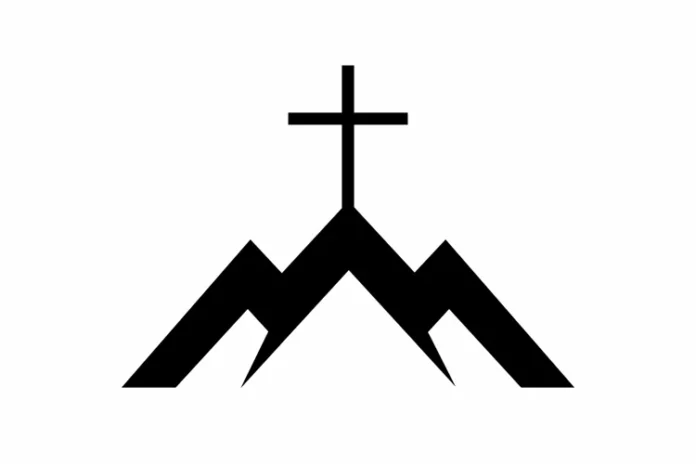The Nigerian House of Representatives on Tuesday took a significant step towards the creation of Ecclesiastical Courts in the country as a bill aimed at amending the nation’s Constitution to establish these courts passed its second reading.
The bill, titled An Act to Alter the Constitution of the Federal Republic of Nigeria, 2024 to Provide for the Establishment of Ecclesiastical Courts of Appeal in the Federal Capital Territory (FCT) Abuja and the States; and for Related Matters, was presented by Francis Waive, the representative for Ughelli/Udu in Delta State.
The proposed legislation seeks to create courts that will handle legal issues related to Christian personal law and ecclesiastical matters. If passed into law, the Ecclesiastical Courts would provide an alternative forum for adjudicating disputes among Christians, particularly those related to religious practices, family matters, and other issues arising from the tenets of the Christian faith.
The primary goal of the bill is to introduce an ecclesiastical layer to Nigeria’s legal system. Ecclesiastical Courts would operate alongside Nigeria’s regular judicial system, allowing Christian communities to resolve disputes in accordance with their religious beliefs. Specifically, the courts would have jurisdiction over matters such as Christian marriage, divorce, inheritance, and other personal law issues, as long as the individuals involved voluntarily submit to its jurisdiction.
This initiative is not entirely new. A similar bill was introduced in 2016 but did not make significant progress. While the previous bill was also intended to amend Nigeria’s Constitution, it was unable to move beyond the second reading in the National Assembly. The 2024 version, however, has gained new attention and has successfully moved to the second reading stage in the House of Representatives.
The idea of setting up specialized courts to address specific religious matters is not unique to Nigeria. Several countries around the world have established religious courts, such as Sharia courts for Muslims or rabbinical courts for Jews, which have legal authority in certain aspects of personal law within their respective religious communities.
In Nigeria, the proposal for Ecclesiastical Courts is particularly significant given the country’s religious diversity, with a large Christian population in the southern and middle-belt regions of the country. Christians in Nigeria have long advocated for a legal system that recognizes and upholds the tenets of their faith in certain personal matters.
Currently, Nigerian courts operate under secular laws, with family and personal disputes being settled according to civil or customary law. However, for many Christians, this system does not fully account for religious principles, especially in areas such as marriage, divorce, and inheritance, which are central to Christian teaching.
The creation of Ecclesiastical Courts would therefore provide a more faith-centered alternative to secular courts for Christian Nigerians who choose to resolve their issues according to Christian doctrine. It would also align the legal system more closely with Christian teachings on moral and ethical conduct.
While the bill has gained traction in the House of Representatives, it is not without its critics. Some opponents of the bill argue that the establishment of ecclesiastical courts could complicate the legal system and raise concerns about the separation of religion and the state. They fear that the establishment of religious courts could lead to legal fragmentation and challenges in enforcing court decisions.
Moreover, critics have pointed out that the Nigerian Constitution, in its current form, already guarantees freedom of religion. Introducing specialized courts for one religious group could create a precedent that may lead to similar requests from other religious communities, potentially straining the country’s legal framework.
Another concern raised by critics is the potential for abuse, particularly in matters of personal law. Some worry that ecclesiastical courts could be used to reinforce patriarchal practices, especially regarding gender issues, such as the treatment of women in marriage and divorce proceedings. Critics have expressed fear that such courts could offer less protection for women and children in family disputes.
On the other hand, supporters of the bill argue that the Ecclesiastical Courts would provide a much-needed avenue for Christians to resolve disputes in a way that aligns with their faith. They believe that it would offer a more culturally relevant system for handling matters that are central to Christian doctrine. Supporters also argue that the establishment of these courts would not undermine the secular nature of Nigeria’s legal system, as the Ecclesiastical Courts would be voluntary and only applicable to those who choose to submit to their jurisdiction.
Several Christian leaders and organizations in Nigeria have welcomed the bill, seeing it as a step towards protecting the rights of Christian Nigerians and ensuring that their faith is properly reflected in the legal system. They also see it as a move to uphold Christian values in the face of a growing trend toward secularism in the country.
Having passed the second reading in the House of Representatives, the bill now faces further scrutiny as it progresses through the legislative process. If the bill passes in its current form, it will proceed to the Senate for debate and possible approval. Should both houses of the National Assembly approve the bill, it would then be sent to President Bola Tinubu for final assent, after which it would become part of Nigeria’s Constitution.
However, the bill’s journey is far from over. Given the sensitive nature of the issues involved and the diverse religious landscape in Nigeria, the bill is expected to face intense debate and lobbying from various groups, both for and against it.
If the bill eventually becomes law, Nigeria would join a growing list of countries that have adopted religious courts within their legal frameworks, further highlighting the interplay between religion and the law in modern societies.

